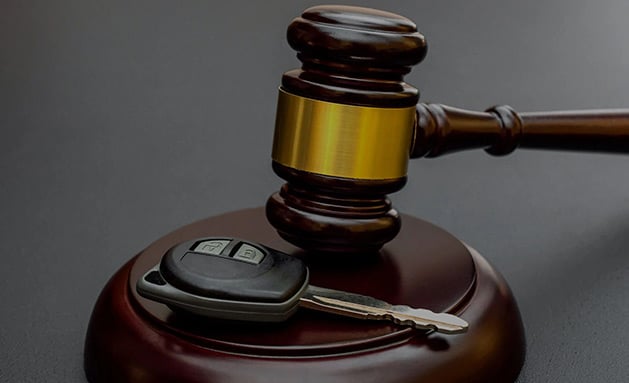Many people don’t like dealing with an insurance company after a car accident—and it’s not hard to see why. What you tell them can affect who they think is at fault, and how much money they’ll pay. Insurers ask a lot of detailed questions, some of which can sound like they’re blaming you for the accident. It doesn’t help if you’re also dealing with pain and physical limitations from a serious injury.
But there are things you can do to maximize your chances of getting your claim paid. And, if they refuse to pay the claim, these things will also put you in a strong position to win a car crash lawsuit.
At the Scene
Right after a crash, it can be hard to think clearly. But you should try to get the names and contact information from everyone involved—the other driver, their passengers, and any witnesses. That information will help you file your claim, and would also be essential parts of a police report on your accident. That police report will be important to your claim because it documents some basic information like when and where the accident took place, whether anyone involved was arrested, and what kinds of injuries the officer saw. The insurance company will need that information.
Second, don’t take responsibility for the accident, and don’t apologize in a way that sounds like you’re admitting fault. You might think it’s just polite, but an insurance company can use it as an excuse to declare you at fault for the crash, which gets them out of paying you. You may also not be in the best position to determine fault.
The Week of the Crash
You should get medical care as soon as possible after a car accident. In some crashes, that’s too obvious to need saying. But if you can walk away, you might not think it’s worth seeing a doctor. In fact, some common car wreck injuries might not be apparent right away, like mild traumatic brain injuries or whiplash, a neck condition.
A doctor can catch those things and make sure you get the treatment you need. The doctor will prepare documents explaining your injuries, which is important for showing the insurance company that your injuries are real. In addition, going to the doctor quickly prevents the insurance company from interpreting any delays as a sign that you’re faking your injuries.
For the same reason, you should also notify your insurance company of the crash soon afterward, and answer any questions from an insurance company for the other driver(s). But when you do this, remember that insurance companies do not necessarily have your best interests at heart. When you make an insurance claim, the company pays you—and therefore loses money. That means it’s in their best interests to avoid paying your claim.
That incentive can become clear in the days after a crash. Insurance companies that don’t want to pay a claim may outright deny it for spurious reasons. They may also stack the deck in their favor by offering you a small amount of money right away, pressuring you to sign a statement that ends your case, or asking to record you and then asking a series of questions designed to make it look like you were at fault. All of those can end your case before you can get full compensation.
If this happens to you, don’t take the bait. Contact an experienced attorney for advice about what to do next.
What To Do Later
If the at-fault driver’s insurance company pays everything it owes you, you may be done—able to heal and move on with your life. But if it doesn’t, you’ll need to talk to an experienced car accident lawyer. Lawyers know your rights, so they can explain what to do when the insurance company calls. They will also handle the insurance company for you, to better protect your rights and free you up to deal with other parts of your injury. Once an attorney is involved, insurance companies have a way of changing their minds about what they owe you.
But if the insurance company still refuses to pay, your lawyer can file a car accident lawsuit to recover that money. In the lawsuit, you can ask the court to order the company to pay compensation for your medical bills, car repairs, your time away from work and more.
When you meet with an attorney, you’ll have a chance to tell them exactly what happened in the crash. Be as honest as you can, and bring along any paperwork or photos you have documenting the crash and your injuries. That could include the police report, your insurance policy, notes from your doctor and anything else that shows what the crash did. The lawyer you end up hiring will study this paperwork, talk to the insurance company and, if necessary, file a lawsuit. But because your lawyer works for you, they won’t do anything without explaining it and getting your consent.
Conclusion
If you were injured in a crash and insurance isn’t working the way it should, you should consider hiring an attorney. For over more than four decades, we’ve helped thousands of Texans get the compensation they need after a serious car accident. To set up a consultation, call us or fill out our online contact form. We’ll review your case for free.





